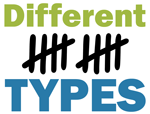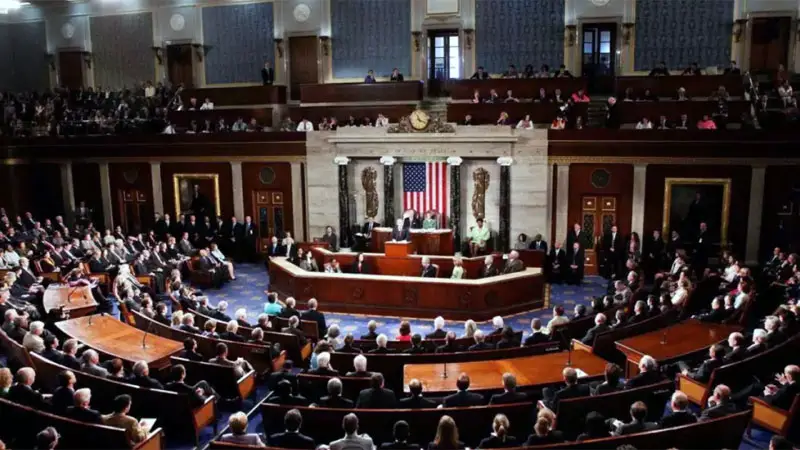For citizens of the United States, a representative democracy is all that many of us have known. But did you know that there are actually many different kinds of democracies in the world today and throughout history?
Types of Democracy
1. Direct Democracy
A direct democracy places all power in the hands of the individual. When political decisions have to be made, all people gather together and individuals cast a vote. In theory, this sounds like the ideal form of government but it fails in many areas.
2. Representative Democracy
As political communities alter and develop, so does our understanding of how democracy should be implemented. This political agreement establishes an intermediary political actor between the individual and the policy outputs of the state. In the case of the United States, elected officials represent groups of people whether it be on a local or national level.
3. Liberal Democracy
A liberal democracy is a political ideology and a structure of government in which representative democracy operates under the principles of classical liberalism.
4. Electoral Democracy
An electoral democracy is a kind of representative democracy based on election, on electoral vote, as modern occidental or liberal democracies. Dominant-party system – Democratic Party system where only one political party can rationally become the government, by itself or in an alliance government
5. Dominant-party System
A dominant-party system or one-party dominant system is a system where there is “a category of parties/political organizations that have successively won election victories and whose upcoming defeat cannot be envisaged or is improbable for the foreseeable future.”
6. Parliamentary Democracy
There are more parliamentary systems in the world than presidential democracies. As the name implies, parliamentary systems are distinct for the reason that of the power that they place in the hands of the legislative branch. Examples of this type of system are Germany and the United Kingdom.
7. Westminster Democracy
The Westminster system is a parliamentary system of government modeled following that which developed in the United Kingdom. This name comes from the Palace of Westminster, the seat of the British parliament.
8. Presidential Democracy
There are lesser presidential democracies in the world, and they are centrally placed in the Americas (North America, Central America, and South America). Scholars say that while parliamentary democracies are more representative, they are also fewer firms for many of the reasons cited above.
9. Jacksonian Democracy
A Jacksonian democracy is the political movement throughout the Second Party System toward larger democracy for the frequent man symbolized by American politician Andrew Jackson and his supporters.
10. Soviet Democracy (Council Democracy)
Soviet democracy (sometimes called a council democracy) was a political system in the Soviet Union, in which workers’ councils named “soviets” (Russian for “council”), consisting of delegates, formed organs of legislative and executive power.
11. Totalitarian Democracy
A system of government in which elected representatives make decisions on behalf of an entire country. Though granted the right to vote, citizens have little to no participation or voice in the decision-making course of the government and are simply followers.
12. Demarchy (Lottocracy)
Demarchy is a form of government in which the state is governed by randomly chosen decision makers who have been selected by sortition from a mostly inclusive pool of eligible citizens.
13. Non-Partisan Democracy (No-Party Democracy)
Nonpartisan democracy (also no-party democracy) is a system of representative government or organization such that universal and periodic elections take place without reference to political parties.
14. E-Democracy
It is a form of government in which all adult citizens are supposed to be eligible to participate equally in the proposal, development, and creation of laws. An E-democracy encompasses social, economic and cultural conditions that allow the free and equal practice of political self-determination.
15. Bioregional Democracy
Bioregionalism is a political, cultural, and ecological system or set of views based on naturally defined areas called bioregions, like eco-regions. Bioregions are defined through physical and environmental features, such as watershed boundaries and soil and terrain characteristics.
16. Cellular Democracy
As developed by geolibertarian political economist Fred E. Foldvary, cellular democracy is a model of democracy based on multi-level bottom-up structure based on either small neighborhood governmental districts or contractual communities.
17. Workplace Democracy
A workplace democracy is the application of democracy in all its forms (including voting systems, debates, democratic structuring, due process, adversarial process, systems of appeal) to the workplace.
18. Christian Democracy
A Christian democracy is a political belief which emerged in nineteenth-century Europe under the influence of conservatism and Catholic social teaching.
19. Islamic Democracy
An Islamic democracy is political beliefs that seek to apply Islamic principles to public policy within a democratic framework. Islamic political theory specifies three basic features of an Islamic democracy: leaders must be elected by the people, subject to sharia and dedicated to practicing “shura”, a special form of consultation practiced by Prophet Muhammad, which one can find in various hadiths, with their community.
20. Jewish and Democratic State
“Jewish and Democratic State” is the Israeli legal description of the nature and character of the State of Israel. The “Jewish” nature was first described within the Declaration of Independence of 1948.
21. Theodemocracy
Theodemocracy is a theocratic political system as well as elements of democracy, first theorized by Joseph Smith, founder of the Latter Day Saint movement (Mormonism), in the early nineteenth century.
22. Anticipatory Democracy
Anticipatory democracy is a theory of civics relying on democratic decision making that takes into report predictions of future events that have some credibility with the electorate.
23. Associationalism (Associative Democracy)
Associationalism is a political project where “human welfare and liberty are both best served when as many of the affairs of a society as possible are managed by voluntary and democratically self-governing associations.”
24. Adversialism (Adversial Democracy)
The use of a voting system to decide candidates to hold political and military power is often necessarily adversarial. This process requires each candidate to convince voters that they are more trustworthy in the anticipated future circumstances, than their opponent.
25. Bourgeois Democracy
A Bourgeois democracy is essentially a government that provides the interests of the bourgeois class.
26. Consensus Democracy
A consensus democracy is the application of consensus decision-making to the process of legislation in a democracy.
27. Constitutional Democracy
A constitutional democracy is a system of government in which the confines of political authority are evidently stated and the electorate has the power to remove poor performing governments.
28. Delegative Democracy
A delegative democracy, also named as liquid democracy, is a form of democratic control whereby an electorate vests voting power in delegates rather than in representatives. The word is a generic description of either already-existing or proposed popular-control apparatuses.
29. Deliberative Democracy
A deliberative democracy or discursive democracy is a form of democracy in which deliberation is central to decision-making. It adopts elements of together consensus decision-making and majority rule.
30. Democratic Centralism
Democratic centralism is a Leninist organizational system in which policy is decided centrally and is required on all members.
31. Democratic Dictatorship
“People’s democratic dictatorship” is a saying incorporated into the Constitution of the People’s Republic of China by Mao Zedong, leader the Communist Party of China.
32. Democratic Republic
A democratic republic is, firmly speaking, a country that is both a republic and a democracy. It is one where final authority and power is from the citizens, and the government itself is run through elected officials.
33. Economic Democracy
An economic democracy or stakeholder democracy is a socioeconomic philosophy that offers to shift decision-making power from corporate managers and corporate shareholders to a larger group of public stakeholders such as workers, customers, suppliers, neighbors and the broader public.
34. Ethnic Democracy
An ethnic democracy is a political system that joins a structured ethnic dominance with democratic, political and civil rights for all. Both the dominant ethnic group and the minority ethnic groups have citizenship and are capable to fully take part in the political process.
35. Grassroots Democracy
A grassroots democracy is a tendency towards designing political courses where as much decision-making authority as practical is transferred to the organization’s lowest geographic or social level of organization.
36. Guided Democracy (Managed Democracy)
A guided democracy, also known as managed democracy, is a democratic government with increased autocracy. Governments are legitimated by elections that are free and fair but emptied of substantive meaning in their ability to modify or change the state’s policies, motives, and goals.
37. Interactive Democracy
An interactive democracy is a kind of democracy that promotes direct interaction in order to create a fairer society according to the articulated will of the people. Interactive democracy is by its very nature ‘interactive’.
38. Jeffersonian Democracy
A Jeffersonian democracy (occasionally capitalized), called after its advocate Thomas Jefferson, was one of two dominant political outlooks and movements in the United States from the 1790s to the 1820s.
39. Market Democracy
A market democracy is not the democracy that Plato spoke of in his Republic as “a charming form of government, full of assortment and disorder, and providing a kind of equality to equals and uneven alike,” nor that Aristotle in his Rhetoric chided as “when put to the strain, grows weak, and is supplanted by oligarchy.”
40. Multiparty Democracy
A multi-party democracy is a system in which multiple political parties along the political spectrum run for national election, and all have the ability to get control of government offices, separately or in coalition.
41. New Democracy
A new democracy or the New Democratic Revolution is a idea based on Mao Zedong‘s “Bloc of Four Social Classes” theory.
42. Participatory Democracy
A participatory democracy highlights the broad contribution of constituents in the direction and operation of political systems
43. People’s Democracy
A people’s democracy (Marxism–Leninism), an ideological idea visualized by the Soviet Union in the aftermath of World War II
44. Radical Democracy
A radical democracy was expressed by Ernesto Laclau and Chantal Mouffe in their book Hegemony and Socialist Strategy: Towards a Radical Democratic Politics, written in 1985.
45. Semi-Direct Democracy
A semi-direct democracy is one of numerous systems in which direct democracy is moderated by mandatory formal mechanisms that force a degree of thought or expert input into the process of setting questions that are answered by votes.
46. Sociocracy
Sociocracy is a system of governance using approval or consent in decision making and an organizational organization based on cybernetic principles.

